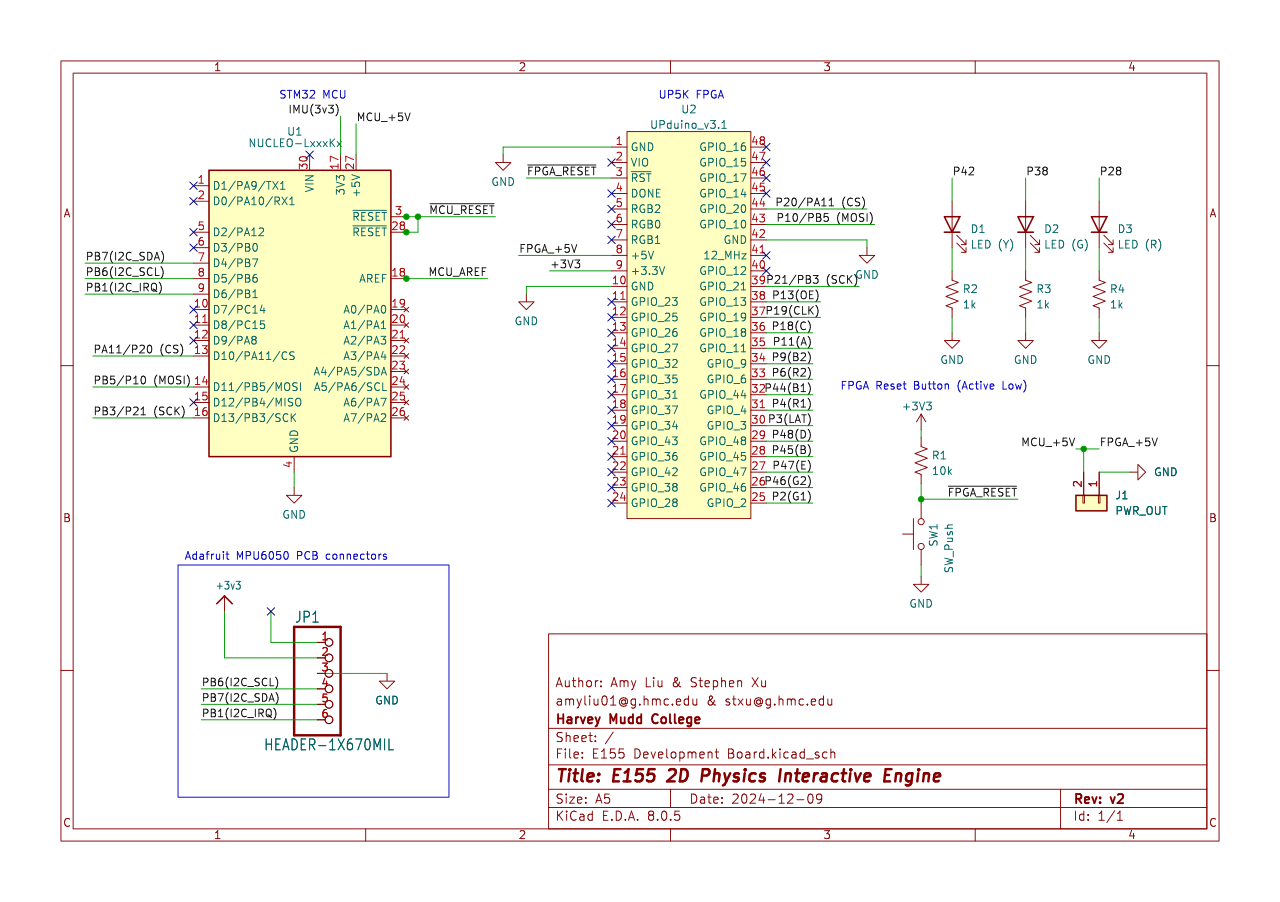Documentation
Source code for the project can be found here
New Hardware
For this project, we covered some new hardware not previously used in this classs. On the FPGA side, we had not previously driven an LED matrix display. We also used SPRAM in our implementation of the display buffer, which was not previously covered on in the class. For the MCU, we made use of the onboard I2C Peripheral on our STM32 MCU, using it to interact with an IMU.
Schematics
Below is the KiCad schematic of what we eventually implemented on our Perfboard.

Bill of Materials
| Part | Part Number | Qnt. | Unit Price | Link |
|---|---|---|---|---|
| 64x64 RGB LED Matrix Panel - 2mm Pitch | 5362 | 1 | $62.01 | Link |
| Adafruit MPU-6050 6-DoF Accel and Gyro Sensor - STEMMA QT Qwiic | 3886 | 1 | $14.18 | Link |
| UPduino v3.1 FPGA Development Board | Upduino V3.1 | 1 | MicroPs kit | N/A |
| STM32 NUCLEO-L432KC MCU | STM32L432KC | 1 | MicroPs kit | N/A |
| 3D Printed Casing | N/A | 1 | 3D Printed | N/A |
| Perfboard | Vectorbord 8001 | 1 | Class Materials | N/A |
And some misc electronics (wires, resistors, LEDS).
Total Cost: $76.19
References
Zeller, Henner. “Wiring Diagram for RGB LED Matrix Panels.” rpi-rgb-led-matrix, version master, GitHub, https://github.com/hzeller/rpi-rgb-led-matrix/blob/master/wiring.md. Accessed 7 Dec. 2024.
OpenAI. (2023). ChatGPT (Mar 14 version) Large language model
Anthropic. (2023). Claude (Mar 14 version) Large language model
Batten, Nigel. “LED Dimming Using Binary Code Modulation.” Batsocks, https://www.batsocks.co.uk/readme/art_bcm_1.htm. Accessed 6 Dec. 2024.
McGhee, Jason. “Making a Falling Sand Simulator.” jason.today, 8 May 2022, https://jason.today/falling-sand. Accessed 7 Dec. 2024.
Fascetti, Ava, and Joseph Zales. “HMC MicroPs Final Portfolio RFID Doorbell.” GitHub Pages, https://joseph-q-zales.github.io/HMC-MicroPs-Final-Portfolio/. Accessed 5 Dec. 2024.
Dey, Kavi, et al. “NeoObscura.” GitHub Pages, https://kavidey.github.io/NeoObscura/. Accessed 10 Dec. 2024. [For website formatting]